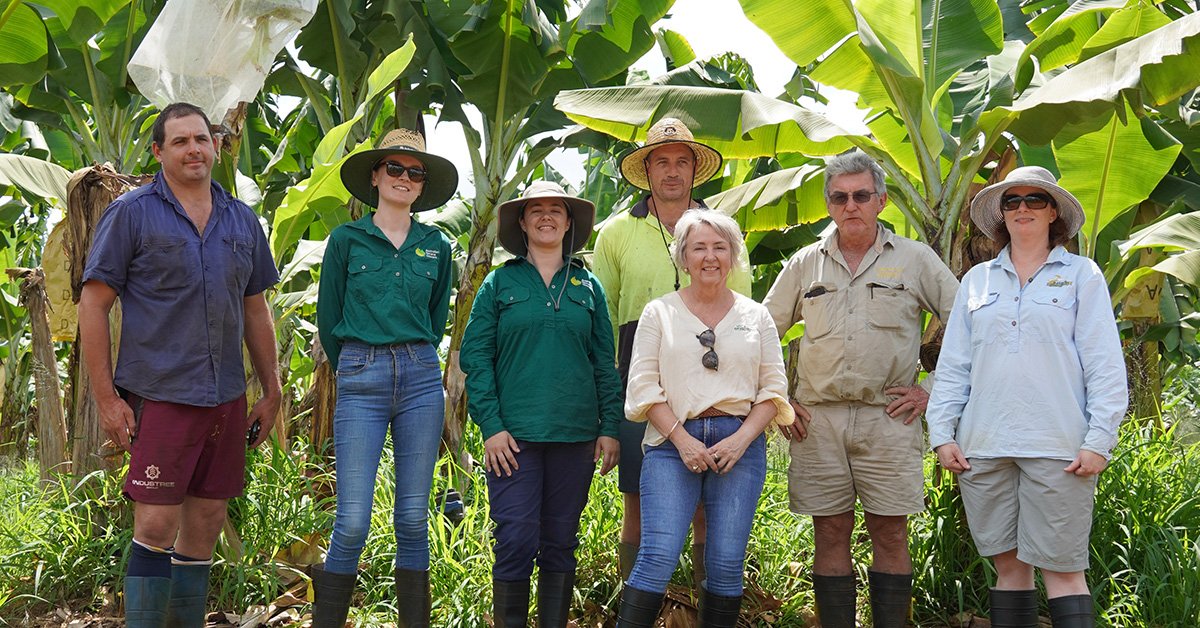Drone technology gives bird’s eye view of the future
Third generation Innisfail banana and papaya farmers Matt and Ben Abbott have worked quietly and consistently to future-proof their family’s farming operations.
More than a decade ago they converted their father’s Mena Creek farm to certified organic. Then, in 2017, to shore up their agribusiness against biosecurity- and cyclone-related risks, the brothers purchased another banana farm in Wangan.
Now growing on 180 acres across two properties, Matt and Ben are looking to optimise the process of applying protectants and beneficial insects to their crop, as well as monitoring coverage and crop health using a drone.
A drone, they envisage, will afford them more regular, efficient, and targeted application and monitoring of their spraying programs than the traditional aerial application method, which they suspect will come under more scrutiny and face possible regulation in the future.
To support this technological development of their organic farming practices, the brothers were successful in their application for a ‘Grow Your Field’ seed funding grant as part of the Queensland horticulture’s decade-long Future Fields strategy, supported by the Department of Agriculture.
The seed funding will assist the Abbotts to implement their vision while also providing the industry with important learnings on implementing drones in an intensive horticulture setting.
Understanding what kind of drone is best suited to their needs is the project’s main question. Such a purchase requires consideration of associated imaging technology, licencing, and other aviation regulations.
It presents the Abbotts with a steep learning curve, but it’s one they’re eager to tackle, and they’re not approaching it alone.
Kicking-off the project on the Wangan property in December last year, the Abbotts were joined by Paul Edwards of Cropwatch Information Services Pty Ltd, as well as members of the Australian Banana Growers’ Council (ABGC).
Already, the brothers have been testing drones, using dyes, and taking images to check coverage and efficacy. This trial-and-error approach is just one aspect of the buying process, but Ben and Matt are optimistic about what their eventual drone purchase will mean for their farm and the banana sector in the north.
“We’re committed to good farming practices, and we’re listening to knowledgeable people to help steer us in the right direction,” Matt said.
As the drone is purchased and demonstrated in the coming months, there is no doubt many growers will be keen to see what this means for the future of large-scale spray technology, movement of beneficial insects, and broader crop monitoring.
L-R: Ben Abbott, Molly Blake, Stephanie Ruiz, Matt Abbott, Angela Seng-Williams, Paul Edwards, and Amelia Foster.

